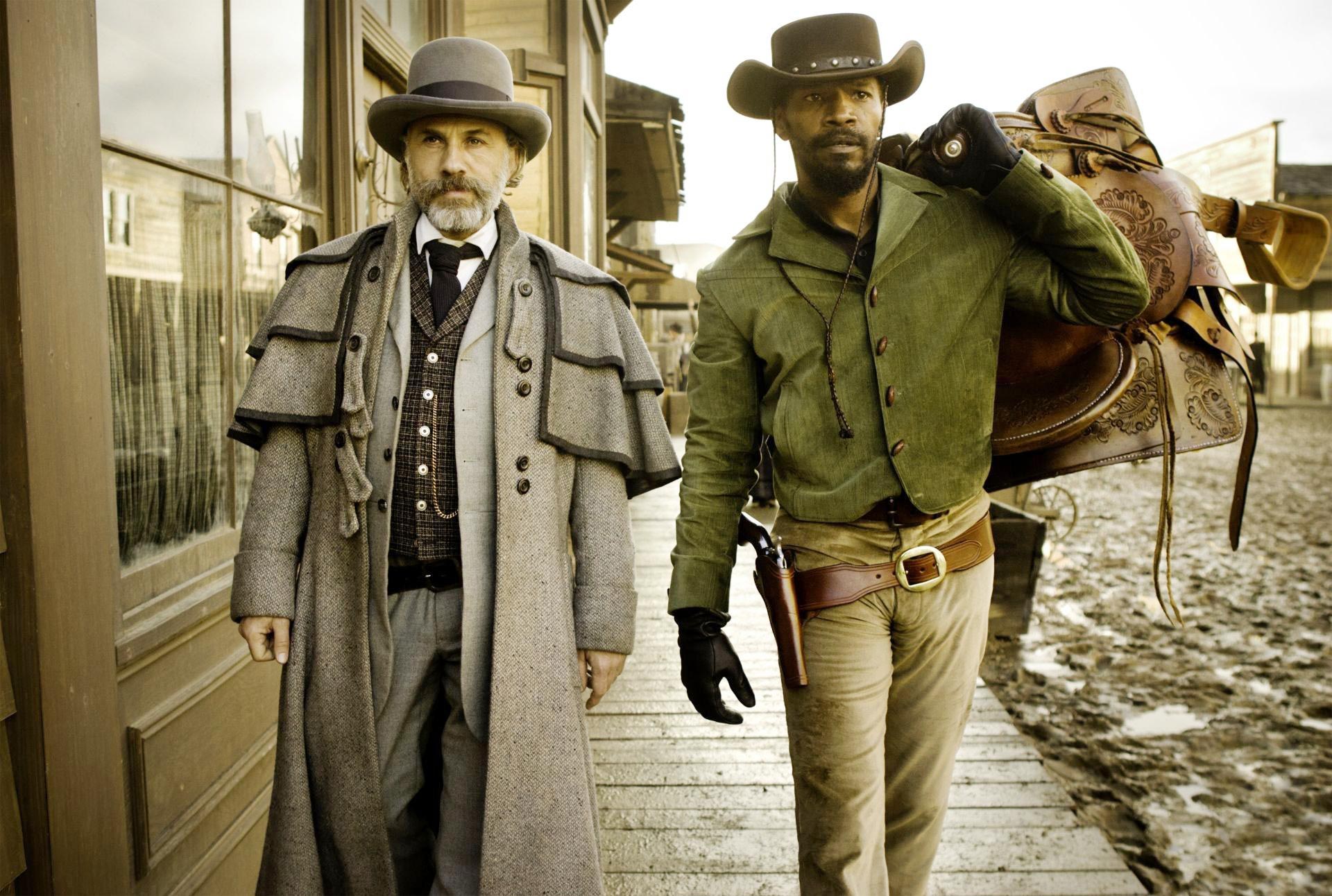When it comes to Quentin Tarantino movies, one thing you can
always count on is originality, something that’s always welcome in this age of
endless remakes, sequels, franchises, franchise reboots and CGI action
spectacles. The 49-year-old director has a mostly uncanny ability to take from
older movies (mostly B grade, exploitation genre pictures) and mold and twist
them together into something immensely unique and creative.
For his latest venture into cinema, “Django Unchained,”
Tarantino has made a western, which actually isn’t very surprising. He’s
already exercised his skill and creative energy in other genres. He made two
hard-boiled crime films (“Reservoir Dogs,” “Pulp Fiction”) a Blaxploitation
crime picture (“Jackie Brown”), a two part Samurai and martial arts homage
(“Kill Bill Volumes 1&2”), an homage to the grind house action flicks of
the 70’s (“Death Proof’) and in his more recent masterpiece “Inglorious
Basterds,” the war drama. It’s about time he’s made a full on western.
But of course “Django” isn’t like a normal western, normal
isn’t in Tarantino’s DNA. The movie deals the very controversial topic of
slavery in the Antebellum South but it doesn’t deal with it in the direct,
thoughtful way Hollywood usually deals with the subject. The film is about
slavery but it isn’t About Slavery. Instead it’s used as a backdrop to tell a
Spaghetti Western style tale (mixed with a hint of Blaxploitation) about
vengeance and rescue, injected with Tarantino’s usual brand of wild eccentricity.
Like “Inglorious Basterds,” it’s a big, bold wildly entertaining fantasy that
only someone like Tarantino would have the guts to make. Like all of his films,
“Django” walks a thin line between comedy and drama, a very risky balance that
for the most part pays off.
The hero of the story is Django (Jamie Foxx), who starts off
as a scared trembling slave and eventually becomes a confident revolver
wielding western hero. He’s freed by Dr. King Schultz (Christophe Waltz), a
German bounty hunter. The two embark on a journey across the south with the
intent to free Django’s wife Broomhilda (Kerry Washington) who’s been bought by
Calvin Candie (Leonardo DiCaprio), a malicious plantation owner who makes his
male slaves engage in one-on-one death matches (it’s known as Mandingo fighting).
In “Inglorious Basterds,” the Jewish characters were given
the opportunity to enact vicious revenge on the Nazis; in this movie Django is
given the same opportunity except against the white oppressive slave drivers.
There’s an amusing but satisfying scene early on where he whips a former slave
driver into submission before shooting him. Foxx plays Django with cool, stern
assurance, like any quintessential western hero.
Dr. King Schultz is somewhat reminiscent of Hans Landa (the
malevolent but cunning Nazi that Waltz played in “Basterds”), except that
Schultz is a full on good guy. Waltz plays him with such eloquence and ease.
He’s deeply intelligent, walks into just about every situation with the utmost self-confidence.
He’s never really fazed, he’s always thinking one step ahead. The only times he
seems unconfident is in the presence of Calvin, who’s also intelligent and
suave but also insane and sadistic. Calvin is the kind of cartoon villain that
someone like DiCaprio can play easily, but he’s no less entertaining to watch.
The movie is expertly paced, Tarantino is able to keep it
moving without it sagging but at the same time he gives his scenes ample time
to play out. This is a Quentin Tarantino film so there are a few instantly
recognizable elements. First off his screenplay is loaded with his trademark
witty and intelligent dialogue. Secondly, his use of music, mainly Spaghetti
Western variations (pre existing music and also a couple of songs composed for
the film) to emphasize the drama or establish mood and tone.
There’s violence galore in “Django,” another standard in
Tarantino Land. Two kinds exist. The first pertains to the more serious parts
of the film (violence towards Broomhilda and innocent slaves, for example) and
the other is the over the top, exaggerated comic book violence, like during the
final shootout at the end. Whatever kind violence it is and however much there
is Tarantino never uses it willy-nilly.
In regards to the first kind of violence he shows the
audience just enough for us to feel the effect without over exploiting it. For
instance, we get one short brutal scene showing Mandingo fighting and nothing
more is seen after. When it comes to the other kind he has no problem showing
the blood and gore and hyperbolic deaths in all their glory. He knows that that stuff is fake and
cartoonish, whereas the stuff involving Mandingo fighting is much more shocking
and touchy to a movie going audience. Tarantino achieves an oddly brilliant
balance.
In the end “Django
Unchained” is a Tarantino movie through and through. That means it won’t appeal
to everyone. If you didn’t like him before chances are “Django” won’t change your
mind. I get it, he’s a taste that not everyone responds to. At the very least
however, beneath all of the Quentin-esque mayhem, he should be commended for taking
on such a touchy subject in such a fresh and entertaining way.
3.5/4


No comments:
Post a Comment